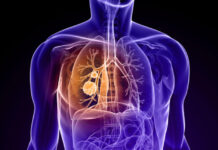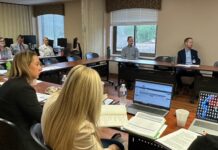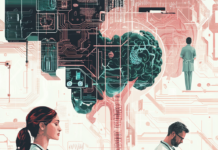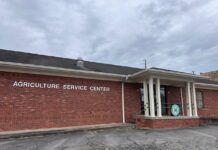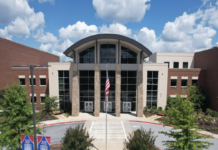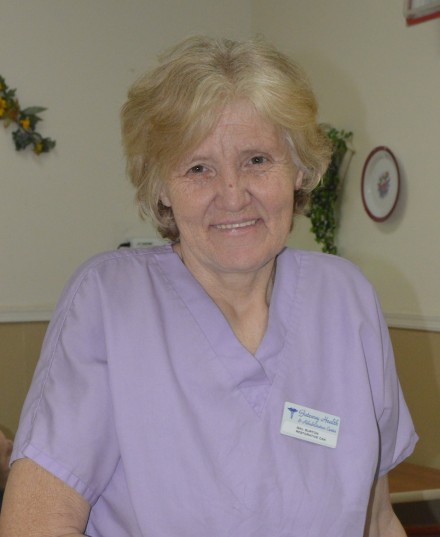
As a certified nurse assistant and restorative aid for nursing home residents, Gail Burton, age 55 of Cleveland, never thought she might need care herself during her recovery from two strokes.
On May 20, 2013, Gail was at work at The Oaks Assisted Living in Baldwin. She had a small headache that just wouldn’t go away. When she approached a coworker at the nurses’ station for aspirin, her coworker noticed that Gail’s speech was slurred and immediately called 9-1-1.
Within minutes, Gail had no movement on her right side and her headache was much worse. She was having a full-blown stroke. Habersham EMS paramedics quickly transported her to Habersham Medical Center where the emergency department team activated the specialized Primary Stroke Center response team and administered tPA, a medication that dissolves blood clots. Once she was stabilized, she was transferred to the Marcus Stroke and Neuroscience Center at Grady Memorial Hospital in Atlanta where she spent the next two weeks recovering.
After being released from Grady, Gail underwent extensive physical therapy three-days-a-week with HCMC Home Care, and she was able to return to her job eight months after the massive stroke almost took her life.
A few weeks ago and almost two years later, Gail suffered another debilitating stroke. A large majority of stroke patients do suffer additional strokes, and fortunately for Gail, her second one was not as severe. This time she knew immediately she was having a stroke. The signs and symptoms were very clear – blurred vision, a headache and slurred speech.
Gail has had multiple health issues and has a history of blood clots and other risk factors that make her a prime candidate for a stroke like stress and a family history. “I told my family that they didn’t have to give me this! A family picture would have been just fine,” she laughs.
On May 11th, Gail returned back to work part-time after recovering from her second stroke. She is currently working at Gateway Health and Rehab in Cleveland. “I still can’t drive, have a small limb, and the right side of my mouth is still drawn a little, but I’m still going and thankful to get up every day. I can’t wait to dance down the halls at work and drive everybody crazy!”
Surprisingly, Gail’s job is to take care of nursing home residents, many of whom have had a stroke themselves. As a restorative aid, she enjoys helping residents regain some of their mobility or range of motion after suffering strokes by helping them do lower and upper extremity exercises to help them be as independent as possible. “Once you have dealt with it yourself, you look at it in a whole different way. I am thrilled when one of my residents is able to walk again even with the assistance of a walker,” she says. “It is very gratifying because I know how hard it is, and I really understand what they are going through. There were many times I wanted to give up. Now, I’m a lot more patient. I thank God I am still here to help others; even if is just holding their hand.”
Gail loves working in health care and credits her coworkers and Habersham Medical Center for saving her life – not just once but twice. “My coworkers quickly recognized the signs and symptoms I was having as being a possible stroke and got the help I needed immediately. My doctor told me that if I would have been at home, I would not have made it. And, the staff at Habersham Medical Center was very experienced and professional. I was in Cleveland when my second stroke occurred, but I had already told everyone that if anything else ever happened to me – to only take me to Habersham.”
When asked what helps her get through each day, Gail laughs and says “My stubbornness!” She is a fighter for sure. “Through it all, I’m very blessed and definitely have a new lease on life. I love working in a nursing home, but I don’t want to live there! I know they would take great care of me, but I’m way too independent!”
Remember, if you suspect a stroke act F-A-S-T
May is National Stroke Awareness Month. If you suspect a stroke, remember the word FAST.
- F is for face – is your face drooping?
- A is for arms – can you lift both arms?
- S is for speech – are you slurring your words?
- T is for time. Call 9-1-1 immediately if you experience any or all of these signs.
Common stroke symptoms include:
- Sudden numbness or weakness of the face, arm or leg – especially on one side of the body
- Sudden confusion, trouble speaking or understanding
- Sudden trouble seeing in one or both eyes
- Sudden trouble walking, dizziness, loss of balance or coordination
- Sudden severe headache with no known cause
Certified as a Primary Stroke Center, Habersham Medical Center has won numerous awards for excellence in stroke care such as the Heart Association/American Stroke Association’s Get With The Guidelines®-Stroke Quality Care Award and was mentioned in US News and World Report for stroke care. Habersham Medical Center also hosts a free stroke support group for stroke patients and their caregivers. For more information, visit www.habershammedical.com or call 706-754-2161.
 About the author:
About the author:
April James is Director of Business Development at Habersham Medical Center in Demorest, GA.


